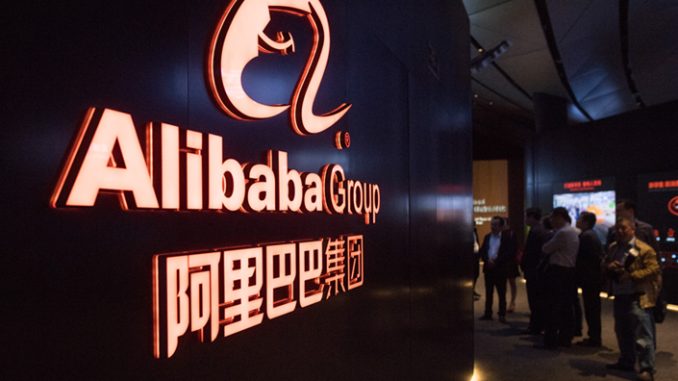
In the ever-evolving landscape of the digital economy, the goliaths of the tech industry find themselves under the unblinking gaze of antitrust regulators. The question that looms large in the corridors of Silicon Valley and beyond is simple yet profound: Is a regulatory crackdown on the horizon for these tech titans?
A Shift in the Wind
There has been a palpable shift in the regulatory air. Governments across the globe are tightening the reins on companies that have, until now, navigated the digital domain with relative impunity. The European Union, with its landmark Digital Markets Act, has taken a pioneering step, signaling a new era of digital market regulation. Meanwhile, in the United States, calls for antitrust reform have grown louder, with legislators from both sides of the aisle pushing for stricter enforcement of competition laws.
The High Stakes of High Tech
Why the sudden scrutiny? The answer lies in the vast and versatile portfolios of these tech giants. Companies like Google, Amazon, Facebook, and Apple have transformed from mere platforms to full-blown ecosystems, where competition is not just a challenge—it’s an existential threat to emerging startups. With such market dominance, these companies are accused of stifling innovation and holding consumers hostage to their tailored ecosystems.
The Consumer at the Crossroads
Consumer welfare is the cornerstone of antitrust laws. With tech titans under the microscope, the protection of consumer interests has never been more critical. Issues such as data privacy, fair pricing, and freedom of choice stand at the forefront of the antitrust dialogue. The consumer, once a silent bystander, is now the centerpiece in this unfolding legal drama.
A Chess Game of Legal Strategy
As the antitrust spotlight intensifies, tech companies are gearing up for a legal chess game. With a fortress of legal expertise and financial resources, they are preparing defenses, lobbying lawmakers, and, in some cases, even willing to undergo corporate restructuring to mitigate regulatory impacts. The outcome of these strategies remains uncertain, but the stage is set for a battle of wits and wills.
Innovation or Domination?
The crux of the antitrust debate hinges on one question: Are these tech behemoths fostering innovation or simply cementing their dominance? While they have indisputably revolutionized the way we live, work, and play, there is a growing sentiment that they may also be hindering the next wave of technological breakthroughs by potentially monopolistic behaviors.
A Global Domino Effect
The European Union’s aggressive stance may well have a domino effect, influencing other jurisdictions to take a harder look at antitrust enforcement. Countries with burgeoning tech sectors, such as India and Brazil, are already examining their own antitrust laws, pondering whether they are robust enough to handle the complexities of the digital age.
The Paradox of Progress
There lies a paradox at the heart of the tech industry’s growth. On one hand, there is a quest for constant innovation—a drive to push boundaries and explore uncharted territories. On the other, there is a need for regulation, a framework within which this innovation must responsibly occur. Striking a balance between the two is the challenge of the current era.
Data: The New Frontier
Data is the new oil, and tech giants are the barons of this frontier. With vast reserves of user data at their disposal, the manner in which they acquire, harness, and monetize this data is a significant facet of the antitrust probe. Data monopolies could potentially be the next target of regulatory bodies keen on ensuring fair play in the digital marketplace.
The AdSense Angle
From an AdSense perspective, the relevance of antitrust issues is undeniable. With Google AdSense being a dominant force in the online advertising landscape, any regulatory changes could have a significant impact on ad revenues and market practices. Content creators and advertisers alike are watching the situation closely, as the outcomes could redefine the economics of online content monetization.
An Uncertain Horizon
While the debate rages on, the horizon remains hazy. Tech companies are bracing for potential changes that could disrupt their business models, while regulators are proceeding with caution, fully aware that their actions could reshape the digital economy.
The Role of Public Opinion
Public opinion has increasingly become a factor in the antitrust discourse. As awareness grows, so does the pressure on regulators to act. However, there is also a countervailing recognition of the benefits that these tech platforms have brought to consumers, complicating the narrative.
The Impact on Startups and Innovators
Startups and small innovators are at the heart of the antitrust concern. These entities often struggle to compete with the entrenched powers of the tech titans, and a regulatory crackdown could either level the playing field or, paradoxically, create new barriers to entry.
Looking Towards the Future
The future of antitrust in tech is not set in stone. It is a narrative in progress, a story being written in real-time. As such, it holds implications for all stakeholders—from the boardroom to the consumer, from the legislator to the entrepreneur.
The Balancing Act Continues
Ultimately, the journey ahead is a balancing act of fostering innovation while ensuring fair competition. It’s a multifaceted challenge that requires a nuanced approach, blending economic theories with legal principles and ethical considerations.
Conclusion: The Verdict Awaits
As we stand at the crossroads of a potential regulatory crackdown on tech titans, the verdict remains in abeyance. The only certainty is that the outcome will have far-reaching consequences for the tech industry and its consumers. With each passing day, the antitrust spotlight grows brighter, and the world watches with bated breath, awaiting the next move in this high-stakes regulatory showdown.